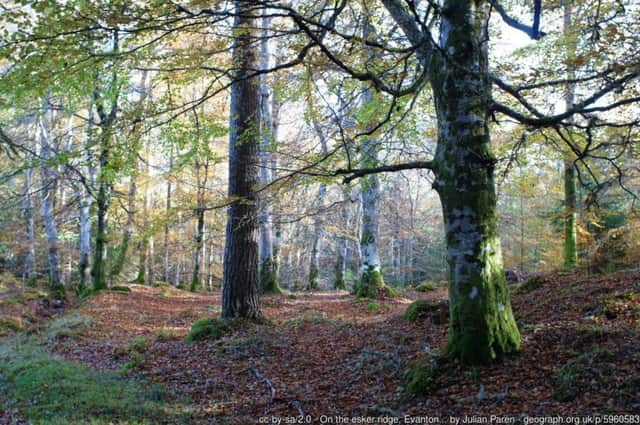Highland woodland becomes Scotland’s first to be dementia friendly


Scotland’s walking charity, Paths for All, has helped Evanton Community Woodland to become accessible for people living with dementia.
Thanks to £6,000 funding from the Life Changes Trust, the area around the woodland cabin has been resurfaced to make it easier to walk around and new dementia friendly signage has been installed on the compost toilet and outdoor sink.
Advertisement
Hide AdAdvertisement
Hide AdOther changes include areas around benches being made wheelchair accessible to encourage conversations and activities as well as new a woodland sign and staff and volunteer uniforms to make them easily recognisable as the person to approach to ask for assistance.
It is estimated that Scotland has around 90,000 people with a dementia diagnosis who could benefit from more everyday walking opportunities. Paths for All identified several ways in which Evanton Community Woodland could be made more accessible for everyone by holding discussions with people living with dementia, carers, local Health Walking group Step It Up Highland and local community consultations.
Ian Findlay, Paths for All, Chief Officer said: “Improving outdoor spaces for people living with dementia is important to ensure they can get outside to benefit from sunlight, fresh air and sensory stimulation.
“If outdoor spaces are well designed for someone living with dementia, they are well designed for everyone.
“This is important as Paths for All want more people to benefit from everyday walking.
“Well designed and maintained paths is essential to making walking an easier option, especially, if you are living with sensory or cognitive decline.”
There are many barriers for someone living with dementia when visiting the outdoors, including a lack of information about accessible outdoor spaces, the services available - for example, parking, paths, terrain, and toilets. Levels of fitness required, costs, safety concerns and transport issues can also be obstacles for those living with dementia.
People living with dementia benefit from being in contact with nature as it can help to relieve stress, increase self-esteem, produce vitamin D, and exercises the brain, helping with memory and cognitive functioning.